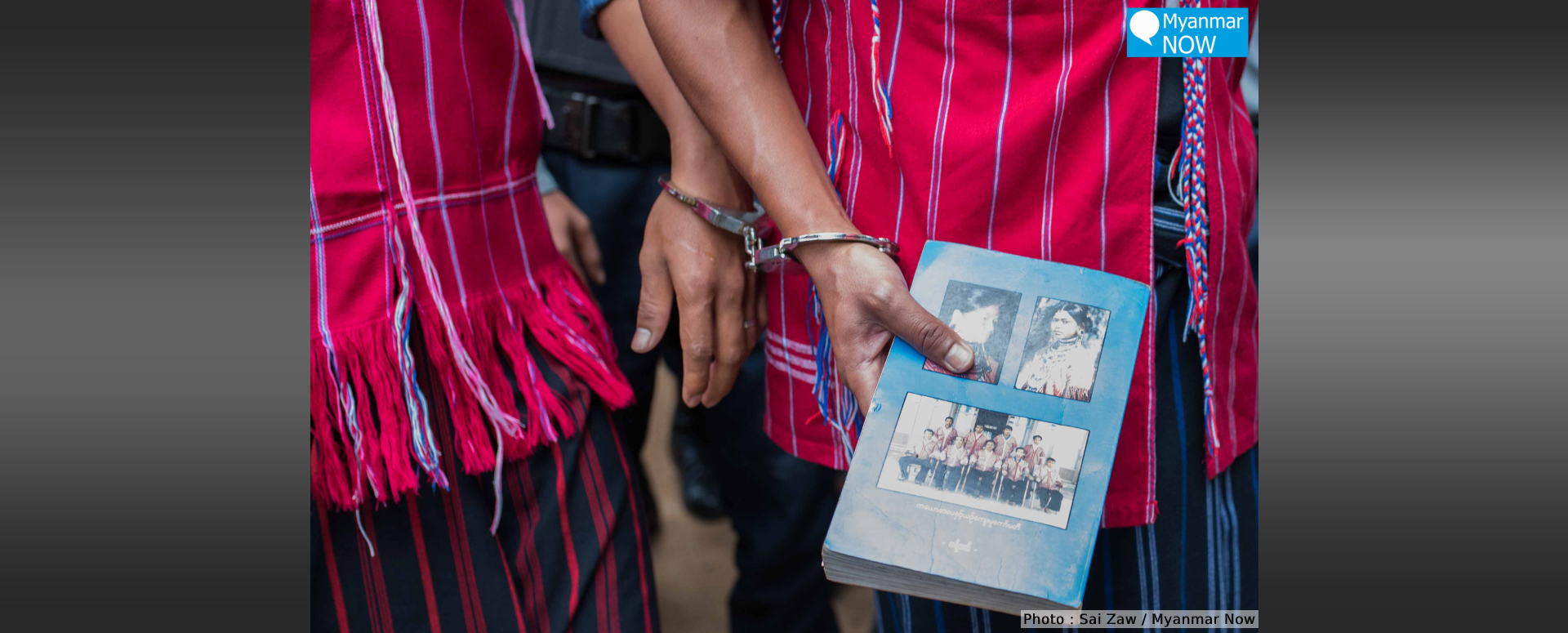
Passed by the NLD government in 2017, the Law Protecting the Privacy and Security of Citizens (known as the Privacy Law) was meant to protect citizens from having their phones tapped—a common occurrence under the military regime—and from online stalking, MPs explained at the time.
But Article 8f of the law also criminalizes defamation—a provision critics say is increasingly being used by powerful interests to stifle free speech.
“We need to amend this law so it does not include defamation, which many laws— article 500 and section 66d—already criminalize and punish,” prosecutor Kyee Myint told Myanmar Now, speaking of provisions in the Penal Code and the Telecommunications Law.
While article 500 of the Penal Code carries a maximum two-year sentence for defamation, section 66d of the Telecommunications Law’s harsher sentencing had made it the preferred method for silencing dissent since its introduction in 2013.
That law carried a maximum three-year sentence until a 2017 amendment lowered it to two—roughly the time the Privacy Law’s Article 8f began being more heavily used.
Privacy Law violations carry a maximum three-year sentence and fines of up to 1.5 million kyats.
What’s more, crimes that carry three-year sentences are not eligible for bail, while those with two-year sentences are.
Critics of the law say those that wield it do so to immediately punish their detractors, who are locked up while standing trial.
Surging use
In the first year of its existence, only eight lawsuits were filed under the Privacy Law; in the last year, that number has grown to 36.
Of the 132 people charged in those lawsuits, nearly 60 percent were charged by MPs, military officials or politicians, according to free-speech advocacy group Athan.
Earlier this month, a Loikaw court sentenced six Karenni activists to six months in prison under the law for insulting officials that had erected a controversial statue, despite widespread protests against it.
The activists had issued a statement calling the Kayah state chief minister and another state official “traitors” and “criminals” for ignoring protestors and building a statue of Burmese independence hero General Aung San. Protestors saw the statue as a reinforcement of cultural control by the dominant ethnic Bamar.
According to the law, the plaintiff does not have to be the person whose reputation is harmed. That case was brought by a third state official.
In April, Magway township NLD chairman Soe Moe filed a lawsuit against the owner of a jewellery store there for criticizing General Aung San on Facebook.
The first charge under the Privacy Law was filed in Mon state’s Thaton township against Aung Ko Ko Lwin, who had posted videos on Facebook critical of the state’s chief minister, Dr Aye Zan.
That charge was filed by the speaker of the state parliament.
On 27 September 2018, Aung Ko Ko Lwin was given a year in prison.
Article 8f states that “No one shall unlawfully interfere with a citizen’s personal or family matters or act in any way to slander or harm their reputation.”
Nearly every case filed under the law has been done so for defamation claims rather than privacy concerns, according to Ye Wai Phyo Aung, co-founder and research manager of the free speech advocacy group Athan.
Kyee Myint said the law should only be used to prevent the state from unlawfully gathering private information on citizens.
Amend or abolish?
The bill committee announced a plan to amend the Privacy Law in February.
The latter, says lower house bill committee secretary Kyaw Soe Lin, is necessary to ending the law’s prevalent misuse.
“We have handed over the task of drafting the rules to the (home affairs) department, and the law will be much clearer after they’re finished,” he said.
The proposed amendment would require the president and the union ministry’s approval for a charge to move to a full lawsuit and would make bail a possibility.
That proposal is still in discussions, but others argue the law should be scrapped entirely.
“Our biggest aspiration is to abolish that law and draft a new one, but the NLD will not abolish a law they drafted,” said Athan director Maung Saung Kha.
“That’s why we’re asking for the abolishment just of Article 8f and an amendment that better supports personal privacy.”



